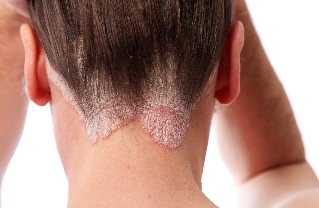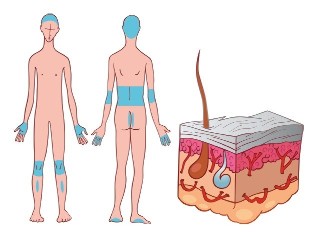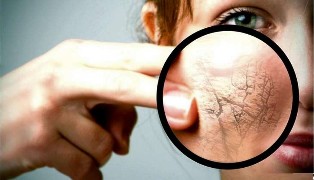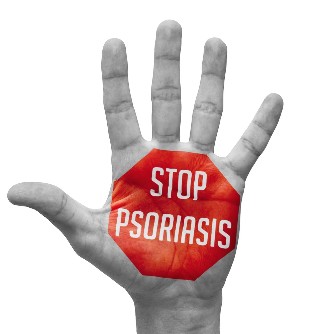
What is psoriasis
Psoriasis (flake zoster) is non-infectious is a chronic disease of the skin, which manifests itself in the form of desquamation and skin rashes. Characterized undulating current, with periods of remission (improvement), and periods of exacerbation. The disease can develop at any age, but most often psoriasis affects people of young age.
The intensity of psoriasis can vary greatly in the different stages. The disease can affect only small areas of skin or cover the whole body. Often the disease progresses, patients show that, in the course of time (a period of acute) psoriasis affects a large area of skin. In addition to the skin, also show psoriasis of the nails, which can occur in isolated form.
Psoriasis – the causes of the disease
The cause of psoriasis is unknown, but cause the disease can immunological changes in the body (aggression, autoimmune, neurological disorders, disorders of the metabolism. Promote the appearance of psoriasis heredity, a reduction of the immunity after the illness, the stress.
Until today, the causes and factors of development of psoriasis are the following:
- Hereditary predisposition (genetic theory of the development of psoriasis). The chances of developing psoriasis of the above, if a person coming relatives suffering from this disease. Perhaps, some groups of genes are responsible for the implementation of the psoriasis.
- Neuro-psychic overvoltage (neurogenic theory of the development of psoriasis). It is well known that psoriasis can be provoked to strong emotional upheavals. Stress refers to serious factors of the development of this disease. People with psoriasis, stress can be a cause of acute disease.
- Hormonal disturbances. Changes in the functioning of the endocrine glands can become a trigger in the development of psoriasis.
- Violation of the metabolism (exchange of theory, development of psoriasis). Problems with the exchange of substances, some vitamins and trace elements (in particular, silicon) and, perhaps, contribute to the appearance of psoriatic platelets.
- Parasites. Considered to be the parasitic theory of the development of psoriasis, according to which the disease is caused by certain intestinal parasites. Numerous studies show that among people who suffer from psoriasis, a lot of media of various parasitic infections. As suggested by scientists, a special role in the development of the disease may play a worm, giardia, bullish tapeworm and others. It is believed that the toxic products, that distinguish these parasites are powerful allergens, which becomes an imbalance in the functioning of the immune system.
- The viral infections.
And even if the causes of the development of psoriasis is not until the end, it was made clear, today the medicine is a well-known mechanism of appearance of this pathology. At the base of the appearance of skin rashes of psoriasis is the poor functioning of the immune system. The immune cells become aggressive to your skin cells, leading to the birth of psoriatic platelets.
Psoriasis – symptoms
Psoriasis manifests itself with the appearance of peeling patches, plaques, red in color, which are highly irritating. Stains most often found on the scalp, the elbow, the knee, in the locality of the folds of the skin. With the passing of time, the surface scales can be easily removed, instead of them there is thick scales, located in depth. With the progression of psoriasis is observed the so-called phenomenon Kebnera: the emergence of psoriatic platelets in places of scratches or skin lesions.
Here are the symptoms, specific for different types of psoriasis:
- Psoriasis in the form of plaques appears raised above the surface of the healthy skin areas red, inflamed, dry, thickened, warm to the touch, the skin covered with silvery-white scales (psoriatic platelets). The skin in these areas is subject to flaking. In place of the skin that flakes remain bags red, which are easily injured and bleed. Psoriatic plate usually blend in among them, increasing in size and shape of the plate of platelets ("wax lake"). In psoriasis flexor surfaces peeling is weak. When you are experiencing red spots, which are located in skin folds (groin, the area of the external genitalia, inner thighs, the folds of the belly, cavity, axillary).
- Guttate psoriasis is characterized by a large amount of dry, small, red or violet defeats, to be raised above the surface of the skin, of the shape that reminds of a tear or circles. These elements are surprising large areas of skin. Guttate psoriasis often develops after a streptococcal infection (e.g., pharyngitis or sore throat).
- Pustular psoriasis appears raised above the surface which was not modified in the skin bubbles filled with clear content. Pustules surrounded with a red oedematous skin, which is easy to exfoliate. Psoriasis of the nails is characterized by a change in color of the nail, the nail bed, the appearance of spots, stains, transverse streaks on the nails, thickening of the skin around the nail bed, thickening and stratification of the nail, a complete loss of the nail.
- Psoriatic arthritis is accompanied by pain processes in the joints and connective tissue. Psoriatic arthritis most often affects the small joints of distal phalanges of the fingers of the hands, feet, and causing psoriatic arthritis dactylitis. Psoriatic eritrodermia manifests the common scaling and inflammation, detachment of the skin on a large part of the surface of the body, edema, pain of skin, intense itching of the skin.
Other symptoms of psoriasis are:
- bleeding area on the skin;
- the appearance of erosions and pits on the nails;
- severe itching;
- it can be a joint pain and swelling.

Classification of psoriasis
We distinguish the following types of psoriasis:
- the vernacular (or ordinary) psoriasis;
- exudative psoriasis;
- arthropathic psoriasis;
- psoriatic eritrodermia;
- psoriasis of the palms and soles;
- psoriasis pustular.
Psoriasis takes place in three stages:
- Progressive stage of psoriasis. This is the first phase of the disease, characterized by the aggravation, which celebrates the increase in the number of fresh eruptions on the skin.
- The fixed phase of psoriasis. This period is characterized conservation of the existing framework of the disease. Skin rashes and other symptoms of psoriasis does not become neither more nor less.
- The Stage of psoriasis away. This is the final stage of the disease, in which the precipitation damaged.
According to the prevalence of a pathological process in psoriasis is:
- limited – affects small areas of the body;
- common – affects significant areas of the body;
- generalized anxiety disorder – affects nearly all the body.
Depending on the season, when the disease is acute, psoriasis:
- winter garden – exacerbation of psoriasis, usually occurs during the the cold season;
- years – exacerbation of psoriasis occurs in the summer period;
- uncertain – when the periods of exacerbation of psoriasis are not affiliated with any season of the year.
The diagnosis of psoriasis
Diagnose the disease by a dermatologist on the basis of a typical clinical picture. To clarify the diagnosis apply a skin biopsy.
The actions of the patient
You can take the sun for 15 minutes each day. Should abstain from the consumption of alcohol, possibly to avoid stress, keep track of your weight to lead a healthy lifestyle, taking care of the skin.

The treatment of psoriasis
For the therapy of psoriasis, apply emollients, medications that reduce the stratum corneum, local preparations (ointments, lotions, creams) with the content of glucocorticoids (hydrocortisone, prednisone, dexamethasone), prepared with a content of pyrithione zinc, ointments with similar content of vitamin D3, coal tar, Naphthalan, hydroxyestrone. In the severe forms of psoriasis, inefficiencies, external therapy, the defeat of more than 20% of the surface of the skin is prescribed the drug therapy, which includes cytostatics (methotrexate), retinoids synthetic (retinol acetate, retinol palmitate, tretinoin), glucocorticoids, a multivitamin (me etc.).
A special role in the treatment of psoriasis must be administered to some substances biologically active, which include:
- Silicon. In recent years, physicians are increasingly talking about the role of silicon in the development of psoriasis. One of the components in the treatment of psoriasis are medications and vitamin and mineral supplements contain silica. To one side of the silicon improves the condition of the skin, and the other acts as an absorbent that absorbs in themselves antigens, play a role in the development of psoriasis.
- Vitamin D. As is well known, one of the essential minerals, needed to successfully deal with psoriasis, it is football. However, for the normal absorption of calcium needs vitamin D. it is Better to drugs with the vitamin D include after the insertion of the active phase of psoriasis of the fixed.
- Fish oil and omega-3 fatty acids. For the resolution of the inflammatory process in psoriasis need to intake of fatty acids omega-3 fatty acids, which are found in large quantities of fish oil.
- The lecithin. This substance is necessary for the quick recovery of the epithelial cells, which die for the psoriasis. Drugs with lecithin enable us to deal with an inflammatory process and restore the integrity of the skin.
The drug therapy is to system photochemotherapy: exposure to ultraviolet light with a wavelength of 320-400 NM in the background of the admission of photosensitizers (PUVA-therapy). They also use cryotherapy, plasmapheresis.
The patient must follow a special diet. The diet in psoriasis should be balanced. The patient must exclude from your diet refined products, spicy dishes and desserts. You need to carefully monitor their health and in every way to avoid colds, because any violation of the immunity can result in the development of the disease.
Complications
Among the possible complications of arthritis, depression, caused by a low self-esteem.

Prevention of psoriasis
Preventing the disease is impossible, but there are methods that allow you to loosen the manifestations of psoriasis and reduce the number of exacerbations. It is necessary to protect the skin from drying, avoid prolonged exposure to the sun, to avoid skin injury. Avoid stressful situations, infections, medication, increase the manifestations of psoriasis (for example, β-blockers, lithium), stopping smoking, limiting the consumption of alcohol. And remember that the psoriasis treatment it is necessary to rely on professionals in the industry. Treatment of psoriasis at home and all types of self-treatment of this disease are not valid.























